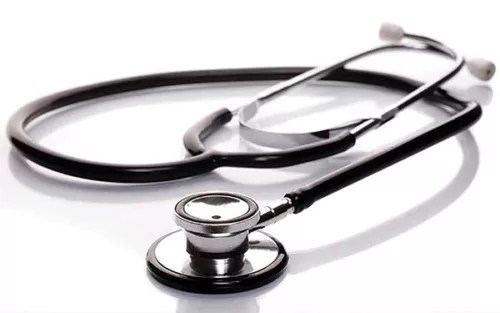You won’t know until you go! Protect your health with regular screenings

We’ve all seen scary movies, where you hold your breath wondering what will jump out from every dark corner. But if you approach going to the doctor with the same fears, it’s time to rethink your feelings. Many people avoid health screenings because they’re afraid of the results. While being nervous is understandable, the truth is: You won’t know until you go. Whether you get peace of mind or a head start on treatment, scheduling a screening with your doctor is potentially lifesaving.
Our Chief Medical Officer, Dr. Van H. Dunn, recommends the following screenings to help you maintain a healthier, fuller life. Check with your primary care physician to find out which screenings are right for you.
Schedule Your Screenings for the Year
Your Benefit Fund’s Chief Medical Officer recommends that you follow these screening guidelines.
| Screening | Beginning at age | How often? |
|---|---|---|
| Physical Exam | All ages | At least every year |
| Eye Exam | Age 40+ | Every 2 to 4 years |
| Blood Pressure Screening | Age 18+ | At least every year |
|
Cholesterol*
|
Age 18+
If your initial test results were abnormal, or if you’re at higher risk of heart disease
|
Every 5 years As directed per your doctor |
|
Glucose/Blood Sugar Screening for Diabetes*
|
Age 45+ | With every annual checkup |
|
Bone Density (osteoporosis screening)
|
Women: age 65+, as well as younger postmenopausal women who have risk factors or who have had a fracture as an adult
Men: 65+
|
Women: Once, then as directed per your doctor
Men: Discuss with your doctor
|
Cancer Screenings †
| Age 45+ |
Colonoscopy every 10 years or Fecal occult blood test every year or Cologuard every 3 years
Ask your doctor which test is best for you.
|
|
| Cervical Cancer: PAP test |
Women age 21–65
|
Every 3 years
|
| Cervical Cancer: HPV and PAP test | Women age 30–65 | Every 5 years, or just Pap test every 3 years (If an HPV test is positive, screenings should be annual)†† |
| Breast Cancer: Clinical Breast Exam |
Women age 20+
|
At your regular checkup |
| Breast Cancer: Mammography | Women age 40+ | Every year |
| Prostate Cancer | Men: Discuss with your doctor | Discuss with your doctor |
| Lung Cancer | Current/former smokers within the past 15 years, age 50 to 80, who smoked 1 pack/day for 20 years or 2 packs/day for 10 years. | Annual |
* Talk to your doctor if you smoke; are overweight; have high blood pressure, diabetes or a history of gestational diabetes; have a family history of diabetes, heart disease or stroke; or are at risk for coronary artery disease.
Sources: American Academy of Family Physicians; American Cancer Society; U.S. Department of Health and Human Services
This screening is easier than ever!
The good news is colorectal cancer diagnoses have dropped in the U.S. in the last few decades. This is mainly because more people are getting screened.* There are now several options for screening, which makes it easier for people to do. Another contributing factor could be that there has been a change in attitude toward healthy eating and exercise. The U.S. Preventive Services Task Force recommends that everyone ages 45 to 75 be screened for colorectal cancer, so make an appointment to be screened. And if you have a family history of cancer, you should check with your doctor to see if you should be tested sooner.
The Women’s Health and Cancer Rights Act
If you’re battling breast cancer, we’re here to support you every step of the way, from mammogram to cancer care. Your health benefits give you access to quality oncology care with many of the top cancer treatment centers in the New York metropolitan area, so you won’t have to go outside of your network for care.
- Reconstruction of the breast on which a mastectomy was performed;
- Surgery and reconstruction of the other breast to achieve a symmetrical appearance;
- Prostheses; and
- Treatment for physical complications associated with all stages of the mastectomy, including lymphedema.